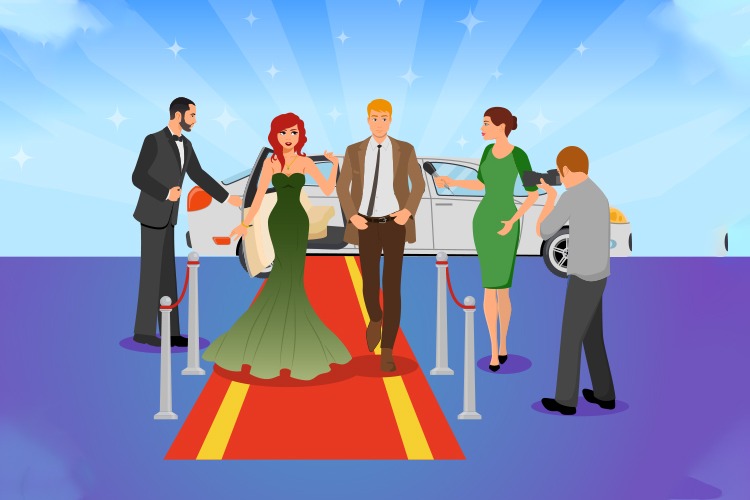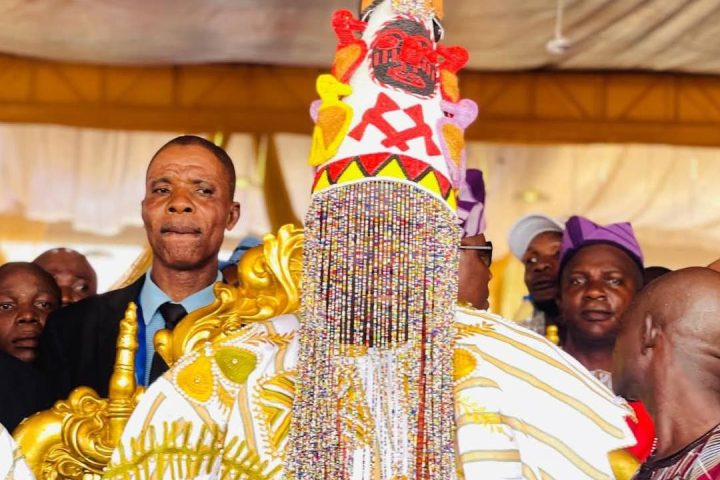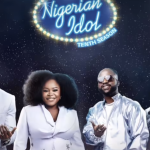In the digital age, celebrity culture has no doubt had a significant impact on the lives of youths in Nigeria just like in other parts of the world. It has gotten to the extent that people allow lifestyles of celebrities exhibited on digital media to dictate their lives. This trend is becoming deeply rooted in our society, particularly among the youth.
As someone who has been observing this phenomenon closely, I believe that the impact of celebrity culture on Nigerian youths is both fascinating and concerning.
Join our WhatsApp ChannelCelebrity culture, a societal fascination with the personal lives of famous individuals, is not just about the celebrities themselves. It’s about us, the people who follow them. Celebrities, through their actions and lifestyle, often set trends and shape societal behaviors. The media, both mainstream and social, play a crucial role in perpetuating them by glamorizing and glorifying the lives of celebrities. But is this always a good thing?
In Nigeria, the reality of celebrity culture is undeniable. Young people are exposed, for better or for worse, to media figures. The lifestyles of these celebrities, as portrayed in the media, influence the social attitudes and lifestyles of Nigerian youths for or for bad.
The influence of celebrity culture extends beyond just consumer behavior. It also affects societal norms and values.
READ ALSO: Amaechi Muonagor: Time To Tame The Outbreak Of Deaths In Nollywood
On a positive note, some celebrities project good values such as charity, honesty, patriotism hardwork, and diligence among others. When a celebrity speaks out about mental health struggles, it can help reduce the stigma surrounding the issue and encourage others to seek help.
After the tragic death of an a Nollywood actor, John-Paul Odonwodo, popularly known as Junior Pope, many opined that his death could have been averted if he had worn a life jacket or had received proper Cardiopulmonary Resuscitation (CPR) after he was rescued from the river. Speaking on the incident, many Nigerian Celebrities, the likes of Mercy Johnson, Funke Akindele, Richard Mofe-Damijo, Genevieve Nnaji, Ramsey Nouah and others created awareness on the importance of wearing life jackets and knowing CPR.
“CPR is a lifesaving skill that everyone should know. If Junior Pope received CPR immediately after being rescued, he might have survived. Let’s spread awareness and get trained,” Funke Akindele stated in her social media handle.
On the negative side, there were some superstitious beliefs about water portrayed on social media after the boat accident. One was that anyone travelling on water by boat must make some sacrifices to appease the water gods or goddesses. Another one is that some rituals must be performed before the corpse of anyone who dies in a river can be taken away for burial and that if such is not done, the person should be buried beside the river. The likes of a Nollywood actor popularly called TC Virus, who was one of the survivors of the boat tragedy, was seen on videos while narrating the incident, claiming that he had before embarking on the journey, made some sacrifices such as pouring Fanta and all that in the river. He made an allusion that the ritual could have been part of what saved him.
These kinds of portrayals gives people not well informed the impression that such is the right practice. People are entitled to their beliefs but there are some that are have negative consequences in reality.
The incident portrayed the implications of our lack of knowledge about CPR and other safety measures on water.
The incident on a positive note, led to campaigns, about the disastrous effects of boarding a boat without a life jacket. Mercy Johnson, a Nollywood actress, who spoke on this said: “If only Junior Pope wore a life jacket, he would still be with us today. Let’s learn from this tragic incident and prioritize safety in our activities.”
READ ALSO: Eminem’s Daughter, Hailie Jade, Marries Longtime Partner Evan McClintock
There are celebrities who use their platforms to advocate diversity and inclusion for equity in all spheres of life, such is also a good one about celebrity culture, and it’s something we should harness.
Still on the negative side of celebrity culture, the relentless scrutiny by members of the public and pressure to maintain a fame status can take a toll on celebrities’ mental health, leading to issues like anxiety, depression, and even substance abuse.
Take, for instance, the Marlian Empire, a popular music group in Nigeria. Their influence on the lives of Nigerian youths is palpable. But should we allow celebrities to have such a profound impact on our youth?
Moreover, the glorification of celebrity lifestyles can perpetuate unrealistic beauty standards and materialistic values, particularly among impressionable young audiences. This is another side of celebrity culture that we must also address.
In recent times, as media globalization has steadily deepened, celebrity culture has been identified as a growing phenomenon, emerging with the rise in popular culture. The media both glamorise and glorify the lives of celebrities and this, according to research, has surprising influences on the lives of youth.
In the context of Nigeria, it seems that celebrity culture is being appropriated by Nigerian youth through their vicarious experiences of the media. But is this what we want for our youth?
The influence of celebrity culture is profound and multifaceted. As the world becomes increasingly digital, it is important for societies to harness the power of celebrity culture positively. However, it is also crucial for all stakeholders to work together to enhance the resilience of society and ensure a safe and productive digital environment.
This is not just about the celebrities or the media, it’s about us the society. We must take responsibility for the impact of celebrity culture on our lives. After all, we are the ones who give celebrities their power. Let’s use that power wisely.

















Follow Us